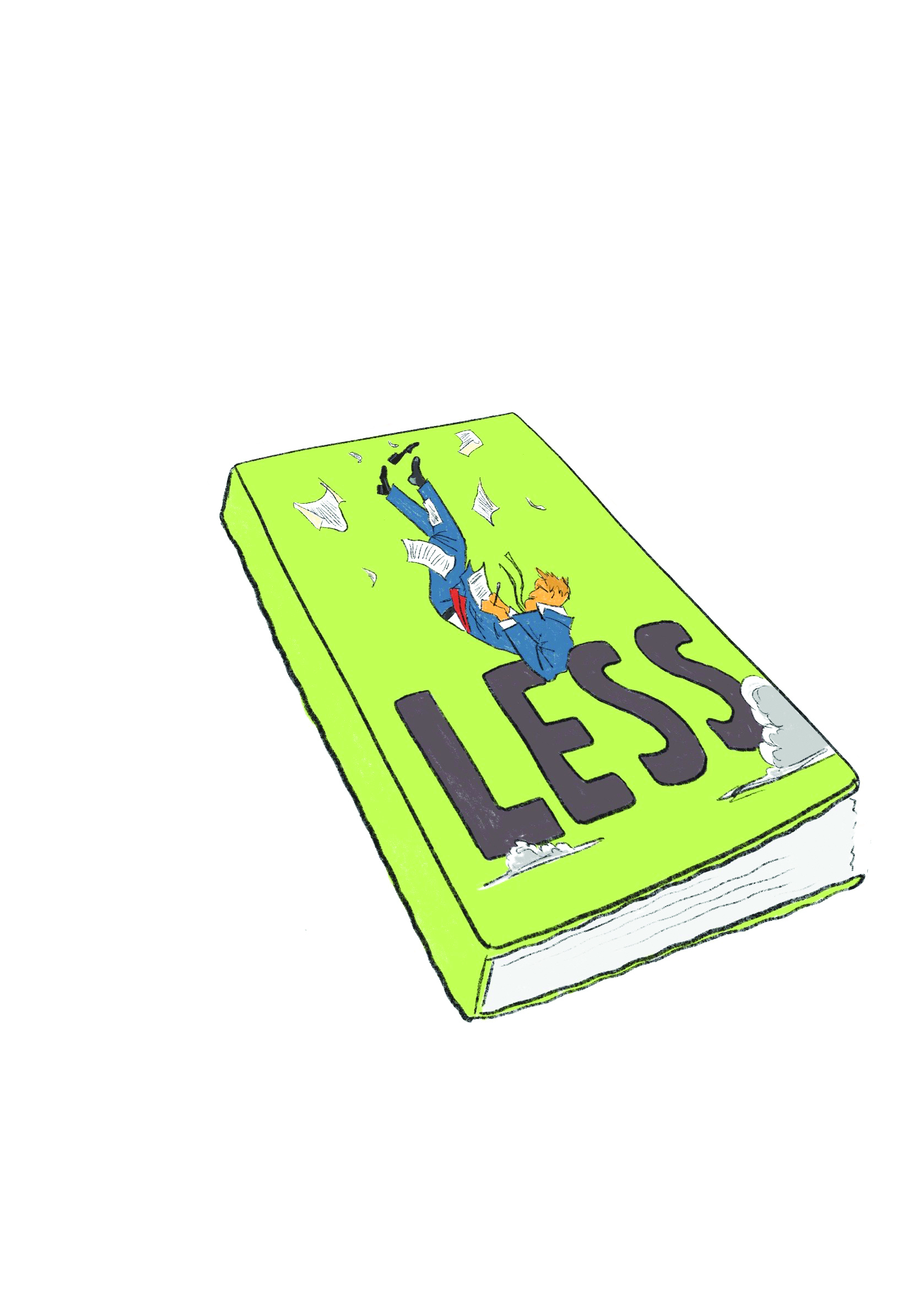Pandemic Picks: “Less” by Andrew Sean Greer
February 19, 2021
 This
piece represents the opinion of the author
.
This
piece represents the opinion of the author
.
 Kayla Snyder
Kayla SnyderI have read more books for pleasure in the past few months than I have in the entirety of my time at Bowdoin—and I’m a senior English major. I’m also not alone. It seems like every day I get off a Facetime call with friends or a Zoom call with a professor where we just talked about this great new book we read. And guess what? We read it purely because we wanted to.
Whether it be because of sheer lack of will to spend every waking moment studying for class, boredom from not partaking in extracurriculars or some magical (and needed) realization that reading should be a healthy, enjoyable activity; I don’t know. I’ll leave such speculation up to another department. What I’m here to do is to provide further indulgence, or at least offer up some recommendations, built on whatever knowledge the English department has bequeathed upon me over the past three and a half years. So without further ado, I give you: Pandemic Picks.
The Book: “Less” by Andrew Sean Greer
Arthur Less needs to get out of town. More precisely, he needs an escape hatch. At the ripe age of, well, nearly fifty (as the novel puts it), Less is finally on the precipice of “finding himself”—something most people think they do in their twenties. It is not necessarily that Less is insecure in his identity or even in his profession. He has been an out-and-proud gay man in the Bay Area for some time and has been writing for nearly as long, too. He is comfortable, even if maybe a little self-conscious, in his looks, and he is somewhat at peace with the fact that he is an author of middling talent. He specifies in the novel that he “has known genius,” and it is easy enough for him to say that he is not it.
Not to say that he is unremarkable or that there are not adventures for him to have—why else would there be a whole novel about him? No, Arthur Less is having a mid-life crisis because he just purely doesn’t understand his luck (or lack thereof) and has been spurned by love too many times. Divorced from his elderly Pulitzer Prize-winning husband, the “genius” he knew, and broken up with by his younger boyfriend, who now is set to marry someone else, Less is lost. So, to “find himself,” he does what every 20-year old wishes they could do: he travels the world.
And so begins a hilarious, whirlwind tale of a middle-aged, somewhat self-conscious, gay author of middling talent who accepts every invitation, every conference speaking arrangement, every teaching position offered to him, just so that he can ignore the wedding invitation from his ex and have a valid excuse. This leads him to far-flung places such as Japan, Italy, Germany, Mexico, Morocco and France. In each place Less is challenged and inspired by his surroundings and his friends. In the process, he learns a little more about himself and about life. Luckily, as readers, we get the special experience of learning this knowledge along with him.
Why you should read it:
It would be easy for me to say that you must read this novel because it won the 2018 Pulitzer Prize for Fiction (something that is ironic given the novel makes so much fun of such awards). However, I don’t think anyone should read anything because of some bureaucratic, toxic and corrupt award. Instead, I recommend this book because there is not another novel that I recommend to anyone more than “Less.” It is comedic. It is introspective. It is smart. It is real. And, above all, it is truly enjoyable.
I think the biggest takeaway for me from this book is that I’m probably not going to “find myself” in my twenties. Hell, I probably will never “find myself”—at least not in the sense that I will finally become “that person” who I was always meant to be. I could take you on a long philosophical journey through Deleuze and Guattari’s theory of becoming but I don’t think that’s the exact knowledge that the English department gave me that is important to share. What I will say is this: people are a weird combination of ever-transforming souls in an ever-aging flesh suit, so make the most of being whoever you are, all the time.
I also can’t promise this book will change your life like it did mine—I’m just a 20-something gay kid from Alaska who studies English at Bowdoin. And whether the believability of Less’s character and experience is because the author, Andrew Sean Greer, is a 50-year old, single, gay author, I don’t know. I’m merely speculating there. (Andrew, if you are reading this, I think you’re cute). What I can say is that “Less” is a really wonderful novel that I think anyone would enjoy reading—and it might just help you on your ever-changing path of “finding yourself,” too.

Comments
Before submitting a comment, please review our comment policy. Some key points from the policy: